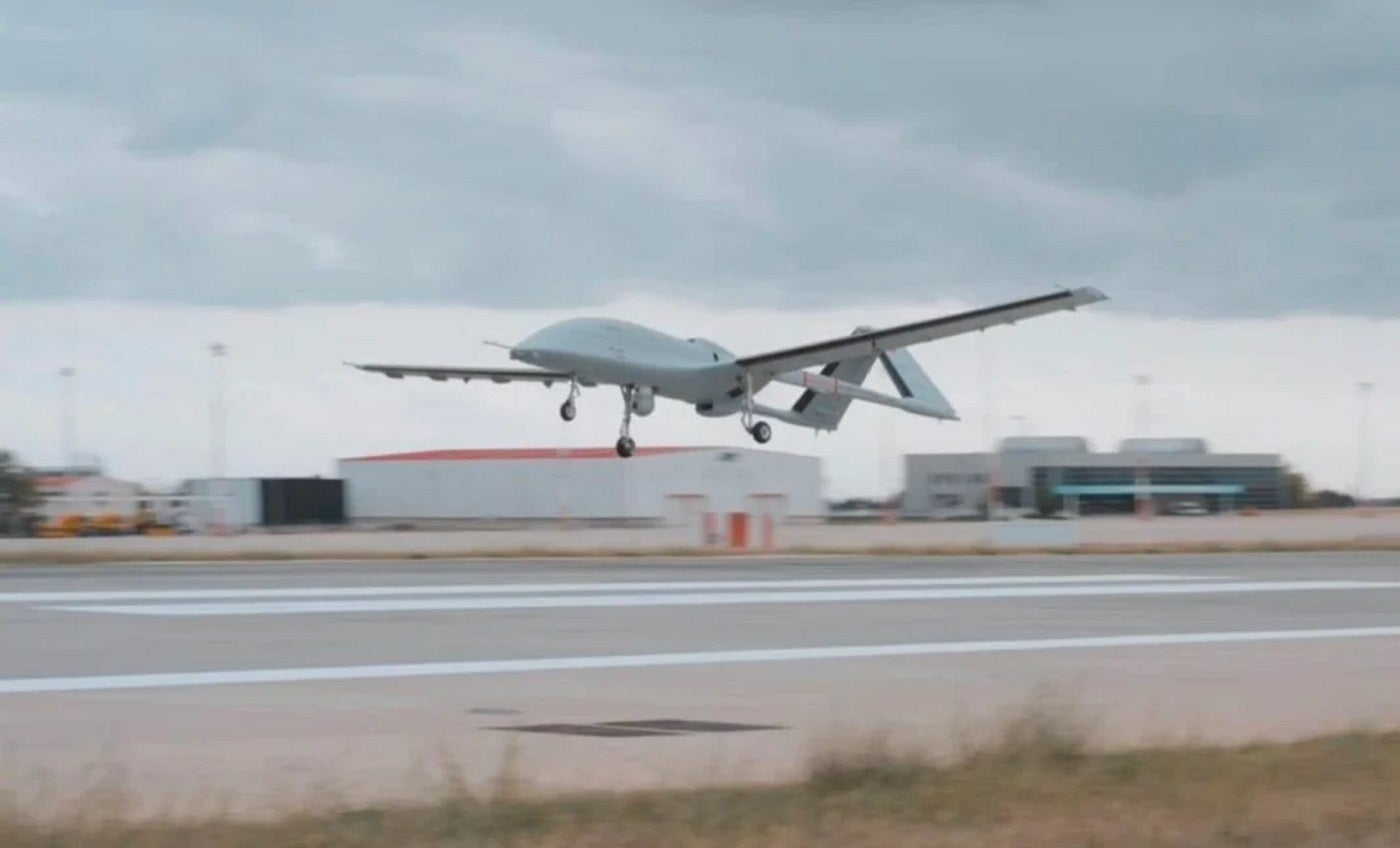
Turkey’s drone manufacturer, Baykar, has achieved a milestone with the Bayraktar TB3.
With enhanced capabilities and dimensions, the TB3 is poised to transform naval operations and bolster Turkey’s presence in unmanned aerial systems. The drone has completed takeoff and landing tests for the naval variant of the famous Bayraktar TB2 drone.
This marks a step forward in the readiness and capabilities of the newly introduced Bayraktar TB3, a short-runway-capable drone designed for deployment on aircraft carriers and amphibious assault ships.
The Bayraktar TB3 is a drone carrier, alongside the Kızılelma jet-powered drone, with roles such as reconnaissance, enemy engagement, and air defence. Integrating these drones into the Turkish Navy represents a step in naval aviation, endowing the vessels with the capabilities for uncrewed reconnaissance and offensive and defensive operations.
The Bayraktar TB2, produced by Turkish defence company Baykar, has gained significant attention for its role in modern warfare.
Baykar has seen success in using its TB2 Bayraktar in Ukraine, according to GlobalData’s “Turkey Defense Market 2023-2028” report. Lithuania received Turkey’s Bayraktar TB2 combat drone in July 2022 and delivered it to Ukraine. The drones were to support Ukraine in its defence efforts.
Its expanded capabilities and larger dimensions distinguish the Bayraktar TB3 from its predecessor, the TB2. With a wingspan of 14 meters and a length of 8.35 meters, the TB3 offers extended operational capabilities.
Its maximum takeoff weight of 1,450kg, along with a payload capacity of 280kg, is an increase compared to the TB2’s 750kg and 130kg. A key upgrade is replacing the 100-horsepower Rotax 912 engine with the 172-horsepower PD170 from Turkey’s TEI.
This development shows Turkey’s commitment to enhancing its presence in unmanned aerial systems and changing its naval operations. With its advancements, the Bayraktar TB3 drone aims to extend Turkey’s capabilities in the maritime domain.







